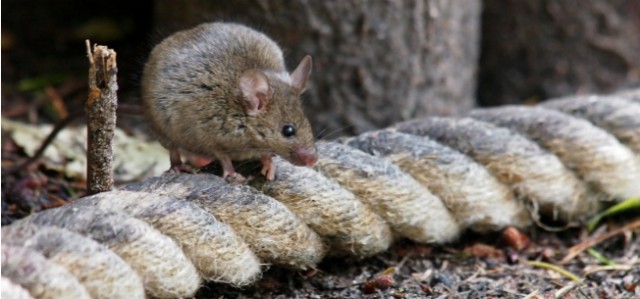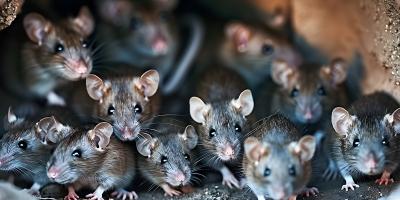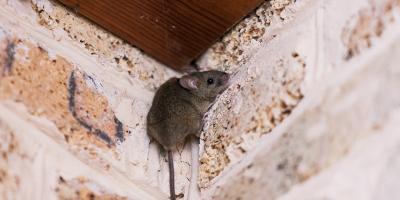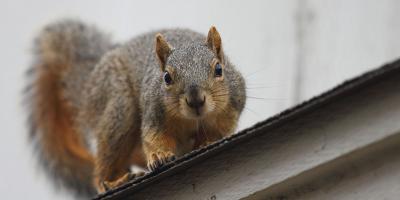How To Fight The Common Rodents of New England

For those in the Northeast, early spring is a welcome reprieve from months of cold - but it comes with some unwelcome visitors.
Warmer temperatures bring melting snow and a peek at the ground, finally emerging from a long winter under the ice. But longer, balmier days also bring an influx of rodents looking for a place to call home - and that can spell trouble for homeowners all across New England.
Whether you’re fending off an active invasion or you’re simply looking to keep your home pest-free in the months to come, here’s a look at the most common rodents around New England, and what you can do to keep them from making your home their own.
Mice
The two kinds of mice we most often encounter in New England is the white-footed mouse (also known as field mice or deer mice). These are each prolific breeders, and because of their small size they can be very difficult to get under control. These mice tend to breed in springtime, meaning they’ll be looking for a place to nest once the snow starts to melt - but in reality, they will invade structures at any time of year, so control efforts need to be consistent and rigorous.
Effective control strategies for House and white-footed mice include exclusion (sealing up entry points), and trapping and baiting. These can, if done effectively, draw mice currently hiding in your home out into the open for removal while also preventing new mice from getting in. Keeping food sources like spilled pet food and bird seed out of reach and safely stored in solid, sealable containers will greatly assist in keeping mice under control in your home.
Rats
Rats, although commonly thought of as city-based scavengers stuck in urban areas, are actually quite well suited for life out in the country. For homeowners in New England, the species of rat most likely to cause problems is the Norway rat, also called the brown rat. Originally from Asia, the Norway rat is much bigger than a mouse, and need easy access to water to survive. Norway rats will often look to enter homes just befor the start of winter, but those that live outdoors will begin burrowing near riverbanks, garbage piles, and under concrete slabs in the springtime. There, they’ll constantly be chewing, breeding, and possibly spreading disease - until you take steps to stop them.
With a complex strategy of locating and sealing all available entry points while putting comprehensive rodent control techniques in place, a pest control expert can help get your rat problem under control, and help prevent one from even happening in the first place.
Squirrels
Anyone who’s spent time in the woods of New England knows all you need to do is look up and you’ll see that there’s one rodent that truly owns the treetops: squirrels.
In the northeast, three kinds of squirrels dominate: the large and ever-present gray squirrels; the smaller, high-energy red squirrels; and the famous glider, the flying squirrel. Each of these makes a nest, called a drey, high in the treetops in the early spring, serving as a home base where they’ll breed, live, and gather food. Squirrels are notorious pests due to their tendency to chew constantly - from electrical lines to attic insulation. Often, a squirrel may make a nest in a home attic or in part of a roof - and that can be a tough removal for any homeowner.
Solving a squirrel problem completely requires a comprehensive exclusion and prevention strategy - probably best left to a pest control expert. Non-lethal removal methods like one-way excluder doors and sealed-off entry points can help draw squirrels back into their natural habitat without doing any harm, while minor carpentry and attic insulation after removal can help keep squirrels from returning in the future.
Chipmunks and Gophers
Chipmunks and gophers - although generally held up as a fuzzy, harmless rodent of the woods, these burrowing little buggers can actually do quite a bit of damage to your property. Neither chipmunks nor gophers are considered especially dangerous, and don’t have much of a history spreading disease like other rodents. They can, however, cause structural damage from burrowing under walkways, steps, and patios, and since they tend to breed in the springtime, the problem will likely only get worse the longer it’s allowed to continue.
Removing and repelling chipmunks and gophers from your property is similar to the methods used for squirrels, and utilizes a strategic blend of exclusion and prevention to draw chipmunks out from hiding and prevent others from taking their place. Traps, bait, and natural repellents can help keep your home rodent free through the breeding season.
Don’t Wait For The Problem To Get Out Of Hand
When dealing with a rodent infestation, it’s critical to remember that any hesitation is just another opportunity for rodents to get a better foothold in your home or property. The smart thing to do is to go after rodents early, and with force - a job best left to professionals like those here at JP Pest Services.
At JP pest, we offer a wide variety of comprehensive, strategic rodent control solutions to help solve your rodent problem fast, efficiently, and completely. Using a combination of trapping, baiting, and non-lethal exclusion methods, our pest control experts can help get rid of rodents while also sealing up your home’s weak points to prevent them from ever coming back. Get in touch today, and get ahead of rodents this breeding season.



